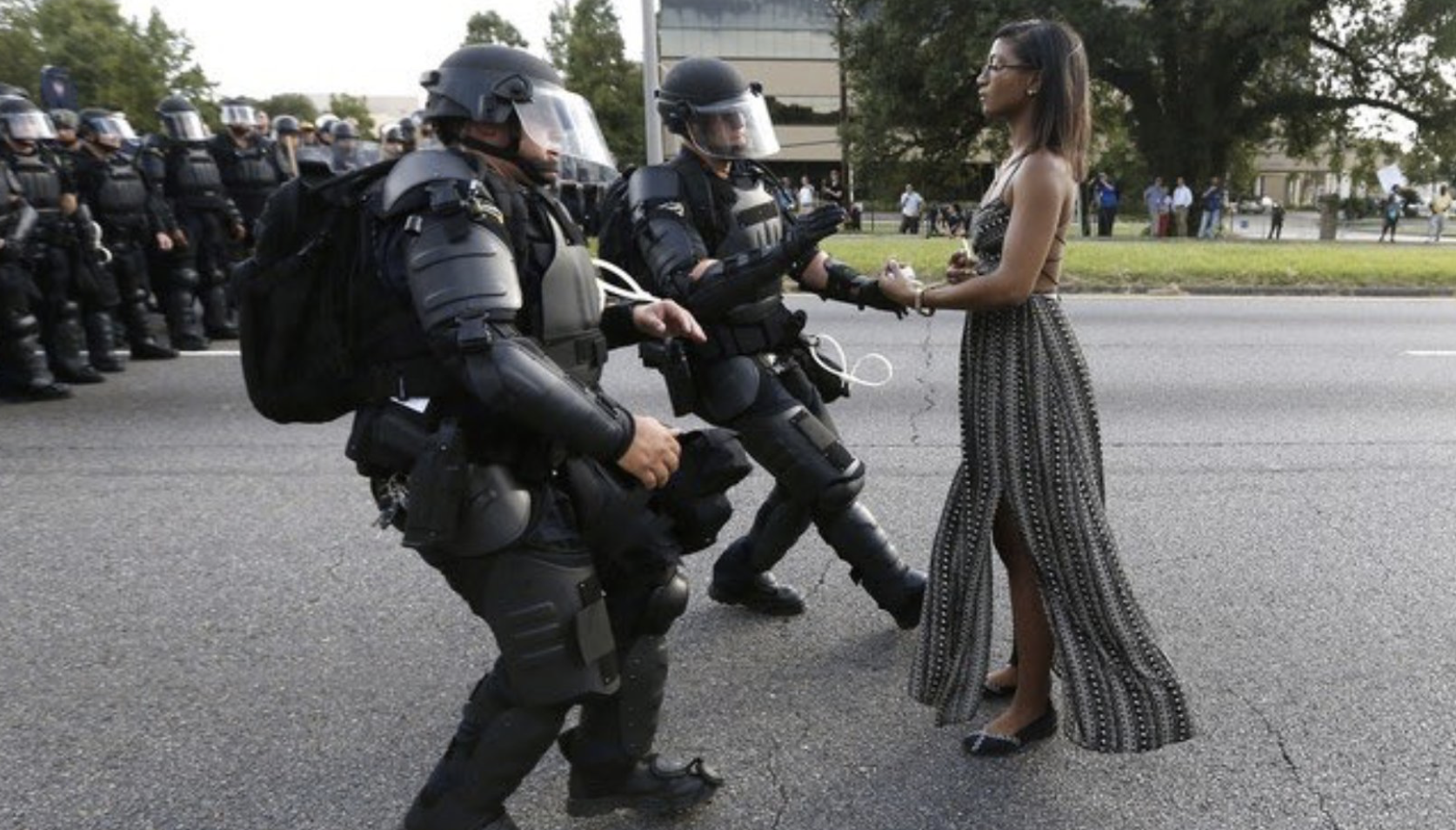Opinion | Getting Rid of #PoliceSadism
Getting Rid of #PoliceSadism
© 2020 by Vernon Miles Kerr, VernonMilesKerr.com, WritersClass.Net
As I write this in June of 2020, America is churning — once again — with civic unrest as a result of our previously respected and vaunted men in blue showing a fearful under-belly of cruelty and apparently, wide-spread racism. My new friend on Twitter @tim_of_ottawa, has coined a new Twitter hash-tag; at least, it’s new to me and doesn’t come up when I search it on Twitter’s search-box: #PoliceSadism. As I mentioned in my reply, it’s “a damned good pointer to the crux of the problem…Getting rid of it will require a two pronged approach.”
This two-pronged approach is needed because #PoliceSadism is a reflection of 1) the thing that attracts “sickos” to the profession and 2) what perpetuates #PoliceSadism once it finds its way in. I call it “bullyhood”. I’ve used the term before in reference to the strangle-hold corporations have on our Federal Agencies. While the direct result of corporate-bullyhood is obtuse, annoying and generally damaging to our democracy, the bullyhood represented by #PoliceSadism is immediate, in-our-face, and even more damaging to our democracy, because it undermines the rule of law — at the street level.
The Rule of Law is basic to peaceful co-existence. At one time the men in blue were called “peace officers” without any irony whatsoever. In order for the very concept of “policing” to work, 99% of a population needs to respect the law and those who enforce it. If that 99% of the public voluntarily restrains themselves from anti-social acts and omissions, then the job of policing the 1% is doable. When a significant number of police officers demonstrate a dis-respect for the law and an inbred hatred for a portion of the public, that 99% decreases. Consequently, public co-operation with the police decreases and the job of policing gets proportionately more impossible. Ineffective policing yields paranoid, surly citizens. It’s a vicious cycle.
I have Tweeted repeatedly, we need to protect the front door of our police system in America by creating a Uniform Standard Police Human-relations Code, similar to the Uniform Commercial Code which has been voluntarily accepted by all 50 states now. As the UCC solved the quagmire of 50 different versions of the laws controlling commercial transactions, a USPHR could filter-out any further addition of psychologically-challenged individuals to our national police forces by requiring psychological testing of potential officers to weed out those who might cower under stress (shoot-first-ask-questions-later) and also incorporating detailed background checks to discover past racial bias.
Once the front-door to policing is guarded, how do we handle the entrenched good-ole-boy network of sadistic, racist individuals who immediately begin applying peer pressure on any new recruit? It’s conform or be ridiculed and ostracized in some police departments (PDs). Any new recruit, no matter how altruistic his or her motives for joining might be, is at risk. No young person, newly on the job wants to be ostracized by his or her peers and superiors.
Compounding the “code of silence” and apparent vow-of-unrestricted-solidarity within problematic police departments is the moral support of Police Union policy. What do these Unions represent, other than a one-sided phalanx against any small suggestion for police-reform? A USPHR, by decreasing the number of bad-apples within PDs might be reasonably assumed to decrease the number of bad-attitudes (and policies) within the Unions.
Along with new laws to restrict inappropriate persons from becoming police officers, we must have a plan for creating internal boards of citizens (not members of the police department) to hear and act upon citizen complaints. The hearings could be private, but the decisions must be public. These are our PDs and handling of complaints must not be kept secret. The recently proposed new “Justice in Policing Act,” from Democrats in congress, while hastily drawn up and largely only a band aid measure dealing with symptoms rather than causes, does have one good idea, a national registry of officers with problematic encounters with citizens.
Whatever eventually is done legislatively to deal with this bubbling national tragedy, it cannot do so by merely listing a bunch of police-officer no-nos. Any effective legislation must address the causes represented by @tim_of_ottawa ‘s hash-tag: #PoliceSadism.

